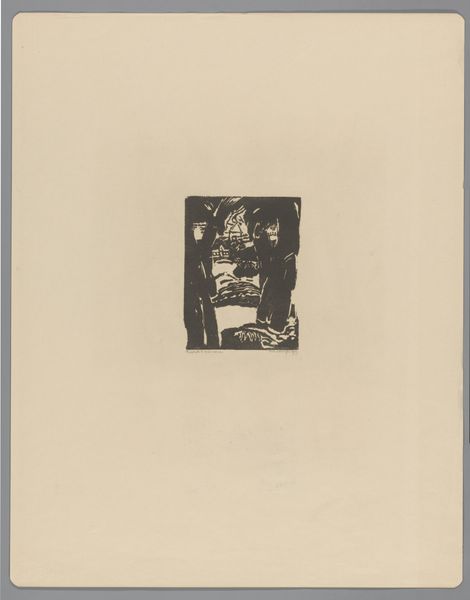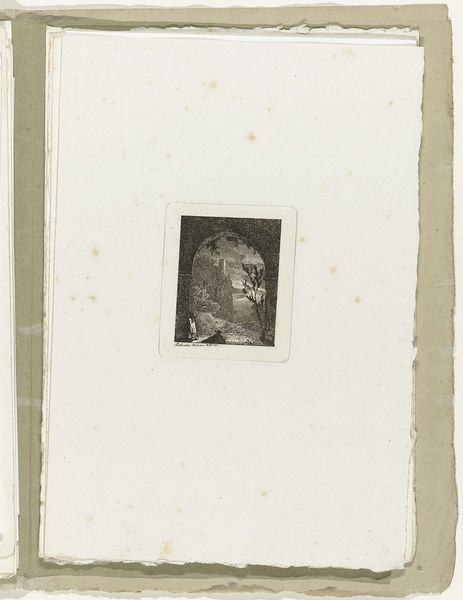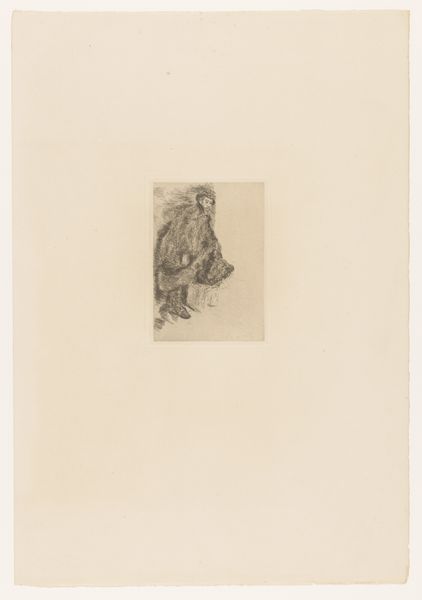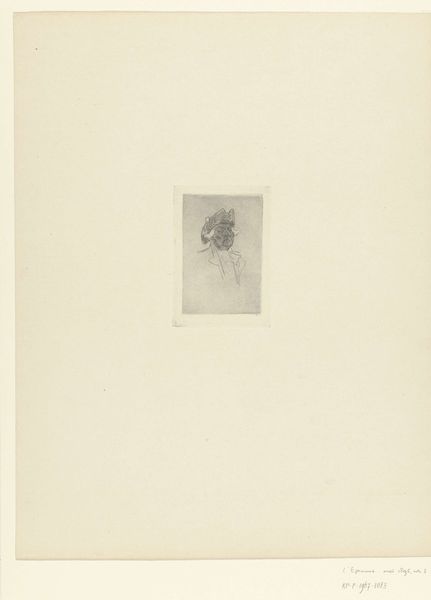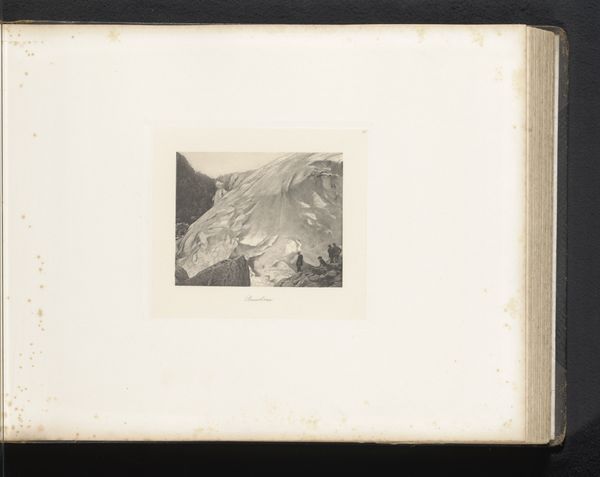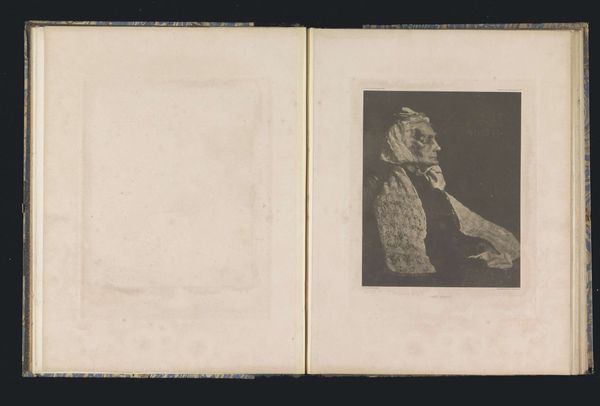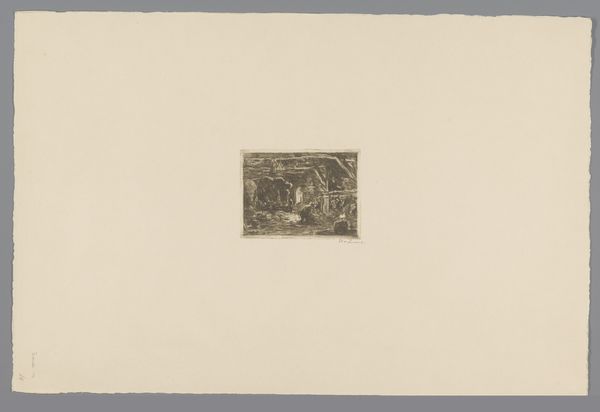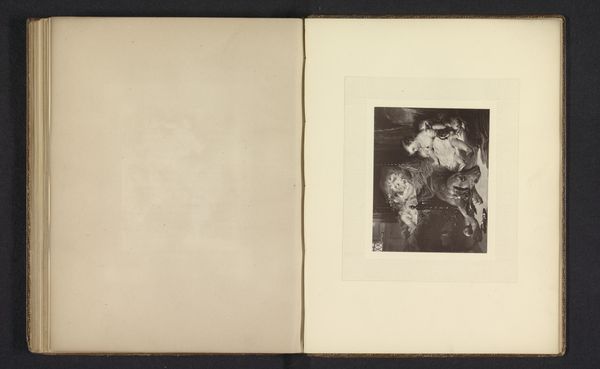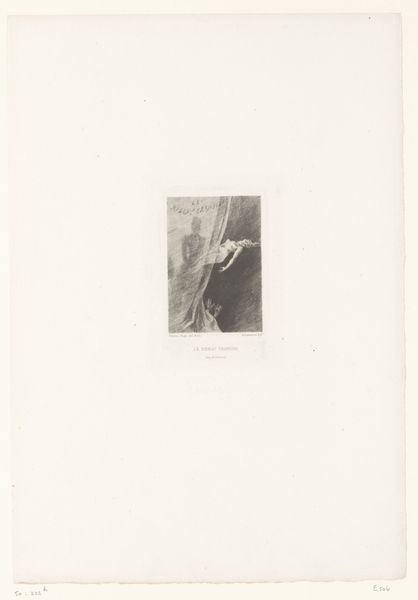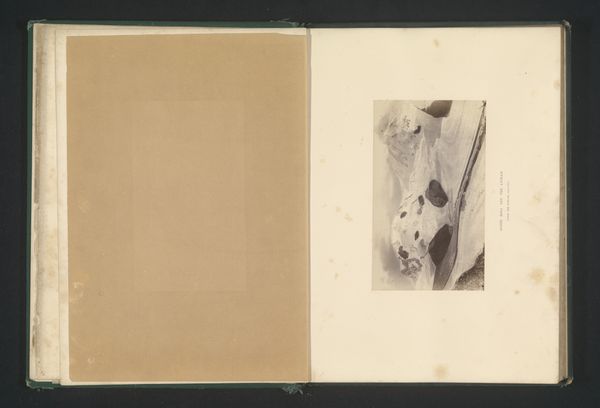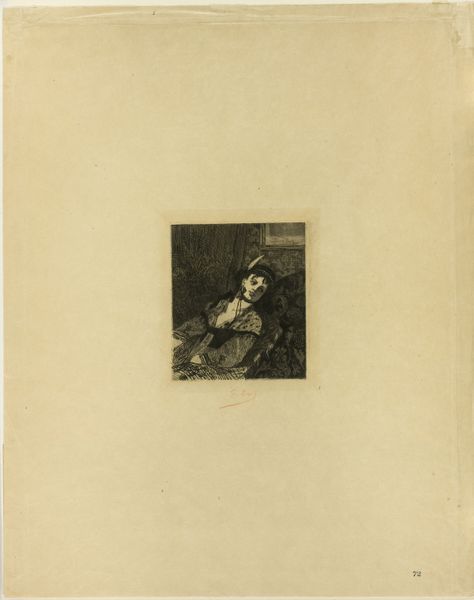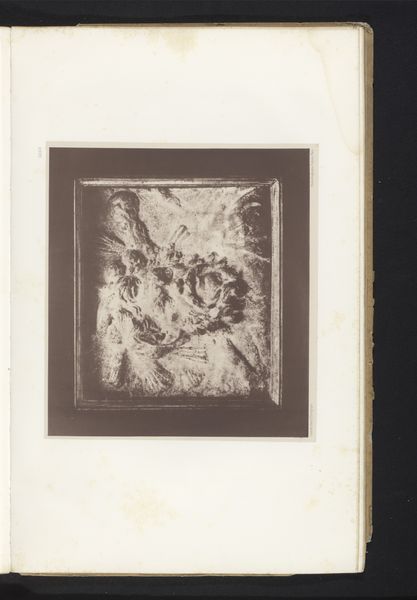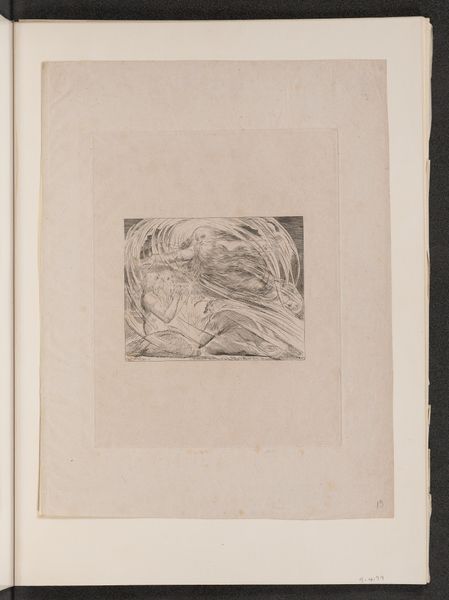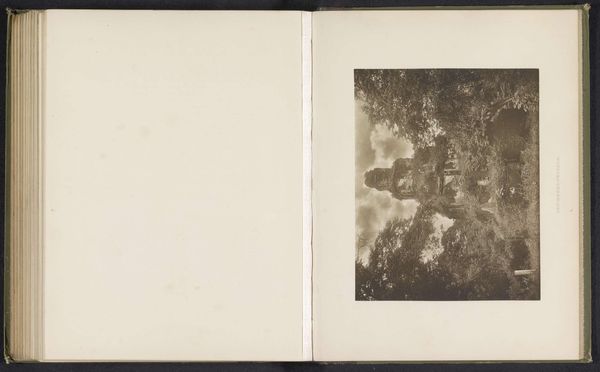
drawing, print, paper
#
simple decoration style
#
photo of handprinted image
#
drawing
#
pale palette
#
3d printed part
#
ink paper printed
# print
#
light coloured
#
white palette
#
paper
#
stoneware
#
white focal point
#
ceramic
Dimensions: 94 × 68 mm (image); 120 × 78 mm (plate); 407 × 311 mm (sheet)
Copyright: Public Domain
Editor: This is Félicien Rops's "Vieille gouge," made in 1889. It’s a print, so ink on paper. It strikes me as quite stark, almost severe, with its high contrast and small scale. What stands out to you when you look at this piece? Curator: The impact of social and institutional contexts on the production and reception of this image are quite intriguing. Consider the title, "Vieille Gouge," translating to "Old Harlot". How does that direct our understanding, especially given Rops's known fascination with depictions of women, often challenging bourgeois morality? Editor: So, the title is deliberately provocative? It’s forcing us to consider the subject in a specific way, even before we analyze the image itself. Curator: Precisely. The politics of imagery are at play. During this period, the role of women in society was heavily policed and judged, both in art and in broader culture. What assumptions does Rops play on – and perhaps subvert – with this unflinching gaze at an older woman? The museum's role in displaying this further shapes the narrative. Does it critique or perpetuate societal norms? Editor: It seems critical, like Rops is daring us to confront uncomfortable truths about how we perceive older women, and especially women who defy social expectations. It's interesting to consider the museum’s choices here; whose voices get amplified and why? Curator: Absolutely. Reflecting on how socio-political forces influence art’s meaning transforms how we see it and where it’s displayed. It asks critical questions of the art and of ourselves. Editor: I never thought about it that way! Thanks for showing how history informs both the art and the institutions that display it.
Comments
No comments
Be the first to comment and join the conversation on the ultimate creative platform.
